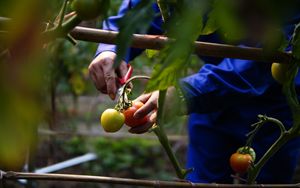(Finance) – With a 28% jump is in agriculture that the highest growth rate of the presence of foreigners at the helm of companies occurred in the last five years. This is what the Coldiretti based on the data Unioncamere-InfoCamere updated to 30 June 2023 on foreign companies registered in the Business Register of the Chambers of Commerce. The strong growth in the presence of foreign owners is – underlines Coldiretti – in clear contrast to the general reduction in the number of agricultural businesses run by Italians that has occurred in recent years. There are 20175 agricultural businesses run by foreigners in Italy where – Coldiretti specifies – they are distributed quite heterogeneously across the national territory. Tuscany and Sicily are the two regions in which the incidence is most significant.
Italian agriculture is therefore increasingly multi-ethnic with the presence, together with many “VIP” farmers who have chosen the Italian countryside, also of many immigrants who, after an experience as an employee, have managed to become entrepreneurs of themselves and achieve true social and economic integration. A qualifying presence for the sector thanks to the experiences of other cultures but also of new production techniques and types of crops.
A contribution that is enriched by 362 thousand employees from all over the world who have regularly found employment in agriculture, providing as many as 32% of the total working days needed by the sector in 2022, according to the analysis by Coldiretti which collaborated on the immigration statistical dossier edited by the Idos study and research centre. .
The result is that almost 1/3 of the Made in Italy at the table is produced in the fields and stables by foreign hands. The community of agricultural workers most present in Italy – explains Coldiretti – is qthe Romanian one with 78,214 employedahead of Indians with 39,021, Moroccans with 38,051 who precede Albanians (35,474), Senegalese (16,229), Pakistanis (15,095), Tunisians (14,071), Nigerians (11,894), Macedonians (9,362), Bulgarians (7,912) and Poles (7,449 ).
It’s mostly about seasonal work with peaks in demand in the summer periods of the collection which – concludes Coldiretti – are guaranteed thanks to regular workers from other perfectly integrated countries who stop in Italy for a few months, returning year after year with mutual satisfaction.
